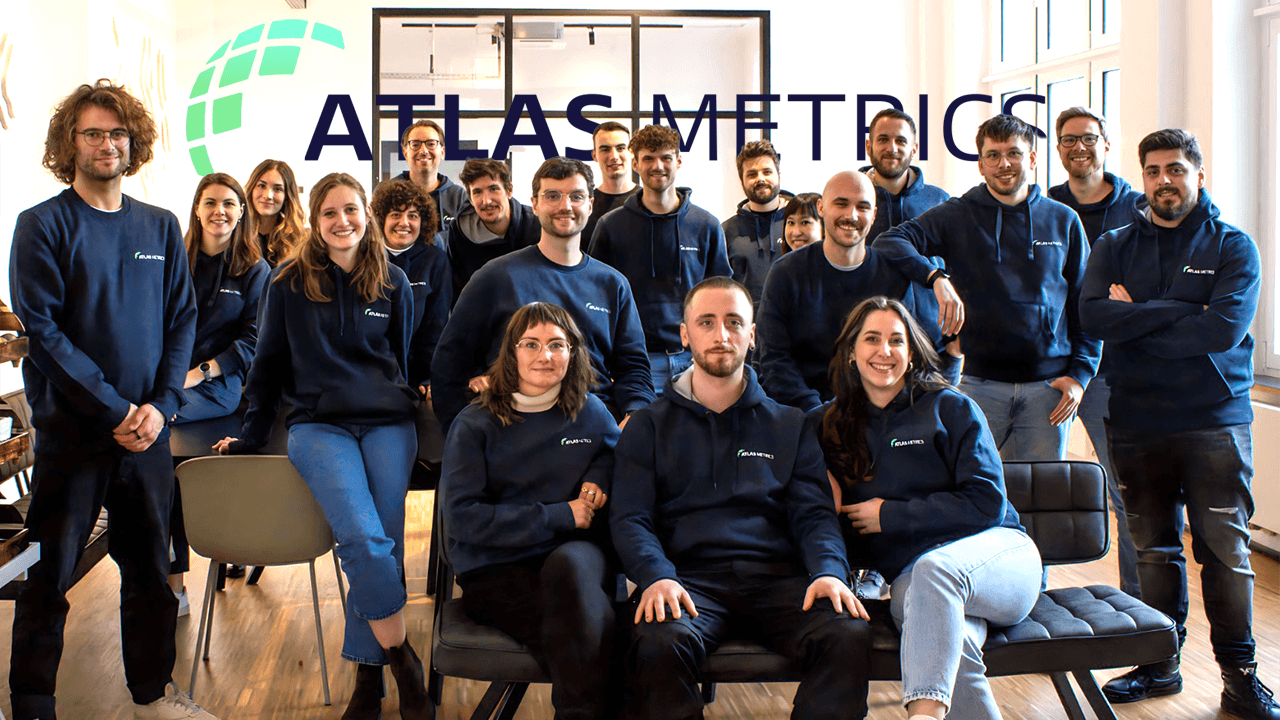Berlin-based Atlas Metrics has raised €5.2 million in a seed funding round that will see the startup expand its “all-in-one” ESG data management platform for companies. Alongside streamlining efforts to get all that carbon & co. under control, a portion of the round is earmarked for a recruitment campaign that will augment its existing 20-person team.
Atlas Metrics’ €5.2 million seed round was led by b2venture (formerly btov Partners) and Cherry Ventures with VR Ventures / Redstone, Global Founders Capital, Rivus Capital, another.vc, and TD Veen participating. The round also saw the financial backing of angel investors including Charlie Songhurst, Matthias Hilpert, Martin Blessing, and Cameron Hepburn.
Another one? Perhaps not.
In a sea awash with startups aimed at helping companies collect, manage, and report ESG data, you can’t blame me for thinking “another one?” Perhaps you were thinking just the same.
However, you and I might be surprised to learn that Atlas is taking the road less traveled by, and if all goes according to plan, “... that has made all the difference.”
Atlas Metrics was founded in 2021 by Oxford and Harvard graduate and former founder and CEO at data analytics solutions for the social sector startup ImmerLearn, Wladimir Nikoluk and kicked off operations less than a year ago. According to Nikoluk, the genesis behind what would become Atlas Metrics began during his time working with the United Nations Development Plan and dealing with the Syria crisis, when he began looking at how non-financial accounting can be measured and better implemented.
As opposed to competitors that use, effectively textboxes that have no allowance for data to be tagged, and thereby near impossible for companies to backtrack and report in a homogenised manner, Atlas Metrics is using a logic model, or data lego blocks as Wlad calls them, to allow for this tagging and backtracking of data. I.e. being able to do what companies say they’re going to do.
GRI, CDP, CSRD, SFDR, LkSG
"One of the biggest differences between financial accounting and non-financial accounting is that you don't have a single standard in which everything is reported. In ESG, you have dozens of standards coexisting at the same time. GRI, CDP, CSRD, SFDR, LkSG, and those are just the really big ones that are sector agnostic," explained Nikoluk.
"Non-financial accounting is never self-sufficient. That means that 40% of the data resides within your organisation, and the other data is in your supply chain, your banks, your investors. If you have to exchange data between different companies between different sectors, who in turn have to report to different standards, you need something in the middle that can take this underlying data and put it together in a way that is consumable by the next entity."
The Rosetta Stone
I wouldn't want to say that Atlas Metrics is building the Rosetta Stone for ESG, but I'll let you be the judge of that based on Wlad's explanation.
This Rosetta Stone approach to tracking and communicating ESG KPIs is striking a chord. In less than a year since launching, the startup counts some 400+ companies from around the globe including Forto, SellerX, Cusp Capital, Kreos Capital, Volksbank im Bergischen Land, Rheingauer Volksbank, IDEAL Lebensversicherung, Modus Group and Schauenburg Hose Technology Group amongst its client base.
Logical growth
And this is all with little to no marketing, but rather, the proof is in the pudding. In so much, because the various actors are all relying on information from each other, Atlas Metrics has taken a page from the viral marketing playbook, and let happy, satisfied customers do the word-of-mouth marketing themselves. A mechanism that has proven to work extremely well for the startup based on its logic model approach.
"Every economy in the world has its flow of goods and the flow of capital. And there is no reasonable geographic or sectoral boundary to draw in the interconnectedness in the world. So, if everything goes well, we can essentially map everything. All the flows from the extraction of the mineral to the consumption of it," concluded Nikoluk.
"...
Yet knowing how way leads on to way,
I doubted if I should ever come back." - from The Road Not Taken, Robert Frost.



Would you like to write the first comment?
Login to post comments